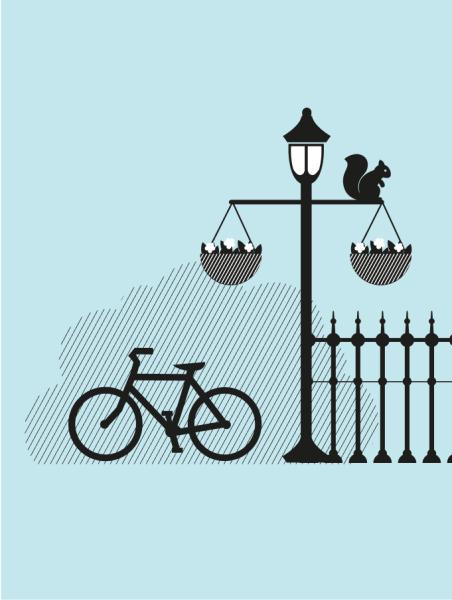Downsizing your home vs equity release – pros and cons

As Brits continue to feel the squeeze of the cost-of-living crisis, homeowners are increasingly looking to their (typically) biggest asset for solutions. For any homeowners sitting on equity and/or unused living space, the consideration to downsize or release equity is a viable option for achieving financial relief. In many cases, (and when done right), this can also result in improved quality of life.
Owning a home provides a sense of security that most homeowners are understandably reluctant to give up. For this reason, downsizers tend to remain on the property ladder and buy a smaller, more cost-effective property.
Millions of under-occupied UK homes sitting on life-altering equity
According to the latest research, approximately 3.6 million UK properties owned by those over 65years of age have a minimum of two spare bedrooms. Furthermore, these homeowners are sitting on an average of £129,000 in equity that they could release by downsizing, ranging from £239,200 in London and £59,800 in the North East.
Almost a quarter of these under-occupied homes are located in the South East, with just over 17% in London, and around 14% to the East.
Other statistics uncovered by the research report that the number of homeowners aged 65 or older has increased by a significant 27% in the last decade, with a whopping 94% owning their properties outright. In addition, an estimated two-thirds of these homeowners live in under-occupied homes, with the value of this under-utilised space amounting to the equivalent of an estimated £1.4 billion in housing stock.
Reluctance to downsize
The reluctance from these homeowners to downsize has been longstanding; according to the English Housing Survey, just 3% of those over 65 years of age reported being unhappy with their homes. Without any significant financial incentive and an attachment to family homes, up till now, these homeowners have had little cause to seriously consider the upheaval of moving.
Nevertheless, the survey also reports that 36% of owners were planning on moving into a smaller and/or cheaper property. Experts predict that, as the cost-of-living crisis continues to bear down on our quality of life, more and more homeowners will consider downsizing as a means of relieving financial pressure and more.
Given the long-term issues regarding chronically-low housing stock coupled with the amount of unoccupied properties that exist, it stands to reason that downsizing should become a far more championed and incentivised option.

The benefits of downsizing
There are many benefits to downsizing, including:
Reducing monthly expenses: What better time is there to reduce your monthly outgoings than during a cost-of-living crisis? By downsizing, you have the opportunity to make considerable savings across many outgoings; energy bills, maintenance, insurance, tax, and mortgage repayments depending on the circumstances.
Releasing equity: Retirement isn’t much fun if you are asset rich but cash poor, especially in these times of economic stress. By downsizing to a smaller, cheaper home, many property owners can free up the equity in their homes to use as they wish. Some use the capital to fund their retirement, while others attribute some of it to assist their children and grandchildren to clear debt or get onto the property ladder themselves.
Making life easier: Downsizing can also often result in a reduction to the maintenance burden of homeownership. Of course, this will depend on the property differences, but many downsizing options involve less outdoor maintenance as well as less indoor area to keep clean and in a good state of repair.
Relocation advantages: For many downsizers, the prospect of moving to a more convenient location after the kids have flown the nest is an attractive one. Once the need for extra space is reduced, the opportunity to live near easily accessible amenities, such as retail and leisure facilities, eateries, medical care and a range of cultural attractions is enough of a pull to warrant the upheaval of moving.
Downsizing costs and considerations
The benefits of downsizing can be significant, but it is a huge move that requires careful consideration.
The costs associated with selling and buying property but be taken into account when crunching the figures to establish the viability of the idea. Costs include:
Estate agent fees: These fees will vary, and will be agreed within your contract. Average commissions sit at around 1.5% of the sale price achieved.
Stamp Duty: As per the current Stamp Duty Land Tax (SDLT), Stamp Duty is only payable for property purchases over £250,000. From there, a SDLT rate of 5% applies to the portion between £250,000 and £925,000, 10% between £925,000 and £1.5 million, and 12% for any property value portion over £1.5 million.
Conveyancing fees: These fees vary but typically range from £300 to £1,500.
Homebuyer survey fees: Depending on the level of reporting and the value of the property being surveyed, these fees can range from £300 to £1,500 or more.
Removalists: Another cost that can vary dramatically depending on how much stuff you are moving and whether you opt for a full packing service, but typically, budgeting for around £1,000 should be a safe bet.
Downsizing options
In many cases, downsizing to a smaller home reduces expenses, but not in every case. In addition to the location and the quality of the property itself, aiming for a high level of amenities, proximity to good transport links and outdoor space, for example, it isn’t hard to find smaller properties that cost more. That said, with the right research and realistic expectations, it is perfectly possible to find a smaller property that meets your needs, improves your lifestyle, and puts some extra savings back in your pocket.
In addition to the most straight-forward approach of selling your home and purchasing a smaller, less expensive property, other options include:
Part-exchange: These schemes enable downsizers to trade their homes in against the purchase of a new build property via a developer. Part exchanges can be a great option for avoiding the need to find a buyer, although, as with most trade-ins, the property value is invariably set to below market value in exchange for the convenience of the transaction. Some developers will throw in perks such as covering the Stamp Duty, but most will only consider properties up to around 70% of the new build, requiring downsizers to switch to a more expensive property than their current one.
Shared ownership: With this option, buyers can invest in a share of a property through a private developer, housing association, or retirement village, and make rental payments on the outstanding portion. A big advantage to shared ownership can be benefiting from increasing values while maintaining a relatively low rental amount. Still, it also involves taking on the role of leaseholder and all the associated trappings. Shared ownership can be a good option, but it’s important to consider the prospect with a fine-toothed comb to truly weigh up all the pros and cons.
Alternatives to downsizing
If moving to a downsized property just isn’t for you, there are some other options for releasing your home’s equity. These include:
Retirement interest-only mortgages: These mortgages allow homeowners to take a loan out to access the equity, while only being expected to repay the monthly interest on the loan - no capital repayment is required until you pass away or transition into care facilities. Once the home is sold, the proceeds repay the lender in full.
Equity release mortgage: Equity release mortgages allow homeowners to access equity without having to sell their property or repay it until the home is sold, often after the owner passes away.

Equity release enquiries soaring
According to the Equity Release Council, £4.8 billion in equity was released from UK-owned homes in the past year, and the number of new equity release plans has increased by 26% for Q2 of 2022 year-on-year.
Statistics show that many more homeowners are reconsidering their options in the face of the cost-of-living crisis, looking to equity release as a solid option for reducing financial pressures and improving quality of life. As reported by leading UK equity release brokerage, Age Partnership, equity release enquiries have increased by 50% over the past year.
What is equity release?
Equity release mortgages work in a similar way to traditional mortgage lending, except they are only available to homeowners over 55 years of age, and the repayment conditions are very different.
With traditional mortgages, both the capital and interest is paid off in monthly instalments, while equity release mortgages have the interest rolled into it, with no repayments required until the property is sold. This typically occurs after the owner either dies or transitions into a residential care facility.
These loans are a fantastic option for accessing equity without needing to sell up and move or increase monthly outgoings, but the interest owed does compound. In the long run, it is a more expensive way to borrow funds, so it does require careful consideration.
Considerations around equity release
Equity release mortgages are certainly suitable options for some homeowners. Still, they are a big decision, and it’s prudent to carefully consider the pros and cons before diving in.
Depending on your circumstances, it may also be helpful to discuss the decision with other family members, as taking out an equity release loan will affect the overall value of your estate after you pass away.
For many years, equity release loans were given a particularly bad rap, seen as trapping people into expensive loan structures with ever-growing interest accumulation. In recent years, however, stricter regulations have been introduced, increasing reputable competition and resulting in considerable product improvements.
That said, it’s important to go in with your eyes open, as equity loans can be tricky to transfer in the event that you do decide to move, and early exit fees can be a little eye-watering.
You can read about how much equity release deals cost here, and how downsizing relief can cut your Inheritance Tax bill here.
Get in touch if you have any property questions!
If you’re considering downsizing, or if you want any advice on moving, equity release, or inheritance tax, get in touch with your local branch.
Looking for advice?
If you're looking to let or sell your property, we can help. Get in touch with your local branch or book in for a property valuation.

Contact Us
Got a question, general enquiry or something else?
You may also like
Since we started in 1818 we have grown and joined one of the UK’s largest property groups, we can save you time and money by offering a range of services and expertise under one roof.





